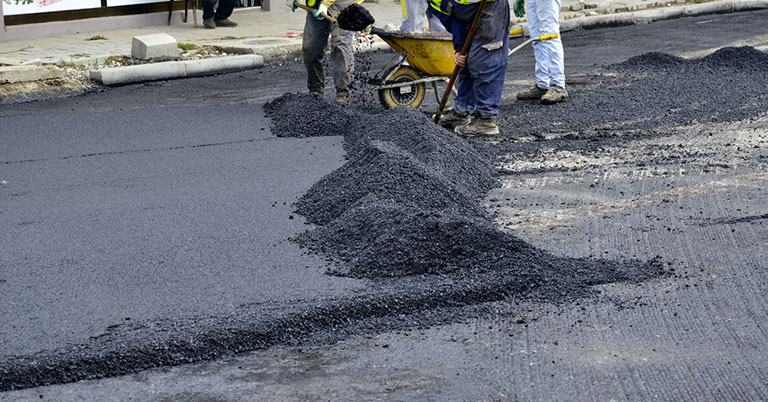If your concrete parking lot or driveway has seen better days, and you’re thinking that the only option is to replace it with new concrete, you might want to think again. In many instances, a qualified asphalt paving contractor will be able to pave right over your existing concrete. In fact, concrete often provides an excellent base for new asphalt because it is a smooth and stable surface. Paving over the surface of existing concrete with a new layer of fresh asphalt can save you both time and money. But there is one very important difference between concrete and asphalt, and that one difference can determine whether or not you’ll be able to successfully install asphalt over the top of concrete – expansion joints.
Expansion joints in concrete surfaces are typically composed of a mixture consisting of asphalt, mineral fillers and vegetable fibers. They are intentionally put in place between slabs of concrete and/or where a concrete surface meets a building or other structure. These expansion joints serve a very important purpose in a concrete surface: they allow a slab of concrete to shift slightly where it meets another slab or a structure, thereby alleviating undue stress on the concrete. Asphalt surfaces, on the other hand, don’t have expansion joints because the asphalt material is somewhat more flexible than concrete.
These expansion joints in a concrete surface can play a major role in determining whether or not you’ll be able to pour asphalt directly over a concrete surface. Your current concrete will need to be stable enough to provide a good base for the asphalt overlay. Asphalt needs to be poured over a compacted surface in order for it to be a durable, long-lasting surface. But this isn’t necessarily the case with concrete. In fact, it doesn’t make that much difference what concrete is poured over because the material will harden whether it’s installed over a compacted base or not. When concrete is poured over an unstable base, it will eventually crack at the expansion joints. If asphalt is poured over the top of concrete that has been installed on top of an unstable base, the cracking that occurs at the expansion joints of the concrete will not only negatively impact the concrete, it will damage the asphalt on top as well. Even the smallest shifting of expansion joints in the concrete base can cause reflective cracks to form in your asphalt overlay. That means that you’ll need to be diligent in fillings these cracks in your asphalt surface as soon as they form to prevent water from seeping underneath the surface and weakening the asphalt overlay.
To find out if it’s possible to install new asphalt directly over the top of your existing concrete surface, contact a reputable, local paving contractor today!
